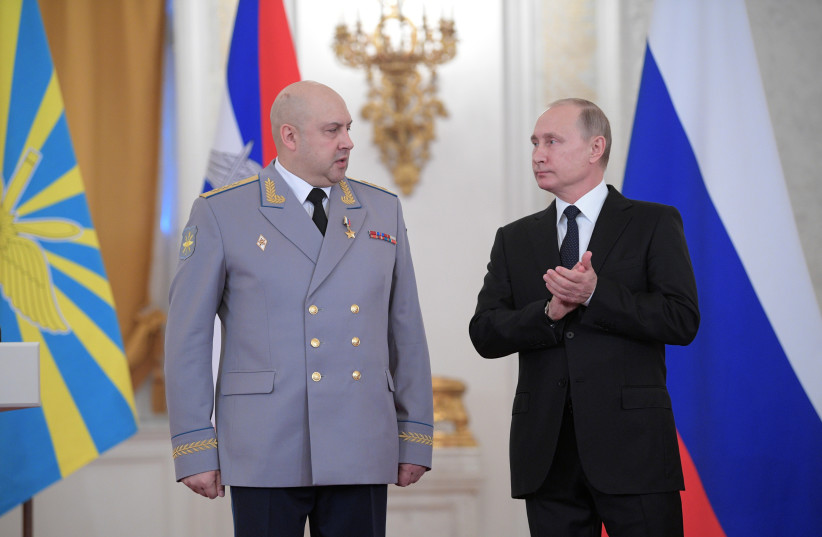The targets’ code names – Breakfast, Lunch, Supper, Dinner, Dessert and Snack – could hardly be more surreal.
Spanning several dozen square kilometers each, the Cambodian rectangles where Vietnamese guerrillas were nesting sustained, between winter ’69 and spring ’70, more than 150,000 bombs weighing more than 200 kilograms each in more than 130,000 B-52 sorties.
The US had been bombing in Cambodia for years, but now its effort became militarily systematic and politically strategic, although publicly unknown (until The New York Times exposed it in May ’69.)
Collectively known as Operation Menu, the onslaught became even more massive when it became part of America’s intervention in the Cambodian Civil War, ultimately killing at least 50,000 Cambodians.
Back when the early bombings’ reports reached them, President Richard Nixon and national security advisor Henry Kissinger believed they had found the game changer that would bring them the military victory the army failed to deliver and the political hegemony that was its aim.

Reality, alas, took a different course, as the bombings failed to compensate for the imagination that the generals lacked, and for the sense of purpose that the politicians failed to inspire.
"General Armageddon" takes charge
Now all this is being reenacted in Ukraine.
FACED with battlefield setback after blunder after fiasco, Vladimir Putin also sought a game changer. The search led to a Siberian-born general named Sergei Surovikin.
Godless, ruthless, and hairless as the film Col. Kurtz (Marlon Brando), the fictional Green Beret in Apocalypse Now who ran his own war near the Cambodian-Vietnamese border, Surovikin is credited with handing Putin victory in the Syrian civil war, where he led the Russian expeditionary force.
The 56-year-old general’s résumé, which overlaps a string of Russian military misadventures from Afghanistan through Chechnya to Syria, offered what Putin sought, not only because of the Frunze Military Academy graduate’s battlefield experience, but because of his role in the 1991 coup that tried to conserve the Soviet system in its last days.
A 24-year-old soldier at the time, Surovikin had nothing to do with the plot itself, but as a junior officer confronting protesters, he ordered his troops to open fire at the demonstrators, reportedly killing three. This record suited Putin on two planes: in terms of its aim, it fit the Russian president’s longing for the fallen Soviet Union; and in terms of its means, it offered the violence he now wanted to unleash.
Furious in the face of last week’s blast on the bridge he built between Russia and Crimea, Putin thus tasked Surovikin with doing in Ukraine what he did in Syria. The general set out to do just that, launching massive missile and drone attacks on 20 cities and towns on both sides of a 900-km. axis that stretched from Lviv in the west to Kharkiv in the east.
It takes no general to understand the rationale behind this orgy of impulsiveness, frustration and wrath.
Surovikin has no remedy for the Russian Army’s underperformance in the battlefield, and no solution for his ground forces’ low motivation, poor training and weaker arms. That is why he is steering the war away from the conventional battlefield, where he can’t win, to the home front, where he can butcher thousands, targeting cities, markets, waterworks, power plants and the citizens themselves.
And so, what began as a raid on the Ukrainian regime and then became an unintended confrontation with the Ukrainian army now becomes a war on the Ukrainian people. Surovikin’s delusion, as he oversees this transition, is logical: it worked in Syria, it’ll work here. Well, it won’t.
Underestimating the enemy
RUSSIA’S BOMBARDMENTS in Syria were different from America’s in Cambodia. The Americans are not known to have deliberately targeted the civilian population they hit. They thought they were targeting guerrillas. In Syria, the Russian-led offensive in behalf of the Assad regime appears to have deliberately targeted neighborhoods and hospitals in rebel-held areas, in the hope of breaking the rebels’ will.
In Syria, it worked. True, a sizable swath of the country remains occupied by Turkey, but the Assad regime has been saved, and Russia salvaged its main Middle Eastern foothold. The Kremlin has been so proud of this outcome that it granted Surovikin the Hero of the Russian Federation Award.
Just how this record can be celebrated as heroism is of course a matter of mentality. In our Western thinking, there is nothing heroic about dropping bombs from an unchallenged fighter bomber’s cockpit on buildings filled with doctors, nurses and their patients (though it should be noted that Paul Tibbets, the pilot who dropped the bomb on Hiroshima, was awarded the Distinguished Service Cross).
The Russian intervention in Syria was also not inventive, having repeated what Generalissimo Franco did in the Spanish Civil War, when he unleashed – for the first time in military history – aerial attacks on defenseless civilians. Still, bombing the people worked for Franco in Spain and for Surovikin in Syria. That’s why he is out to repeat this number in Ukraine. But Ukraine isn’t Syria.
What Russia now faces are not the torn nations and ragtag militias that Franco and Assad faced. Russia faces a unified nation with a real army and real leaders. This is besides the fact that its war’s new commander, with all due respect to his trigger-happiness, brings none of the military imagination his situation demands.
As argued here last month, Russia repeated America’s early mistakes in Vietnam: underestimating the enemy, misreading its own people, and responding to guerrilla’s quality with Empire’s quantity.
Now Russia repeats America’s most tragic Vietnamese mistake, the delusion that what the army couldn’t do on the ground the air force will do from the air. “The horror,” said the dying, and mentally shattered, Col. Kurtz, “the horror.”
The writer, a Hartman Institute fellow, is the author of the best-selling Mitz’ad Ha’ivelet Hayehudi (The Jewish March of Folly, Yediot Sfarim, 2019), a revisionist history of the Jewish people’s political leadership.
